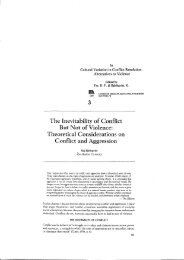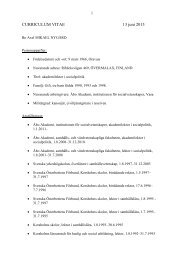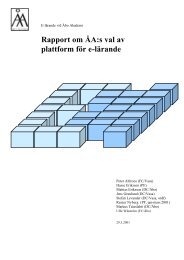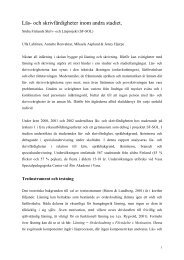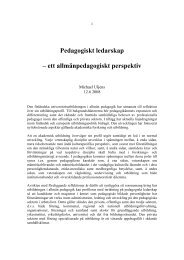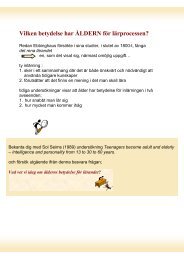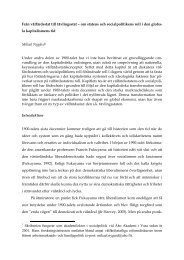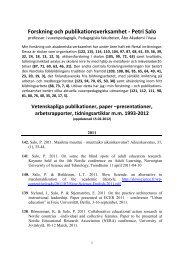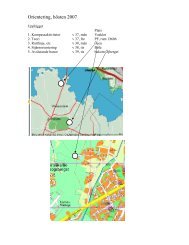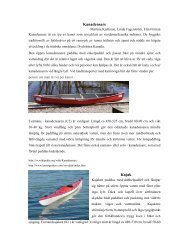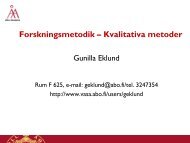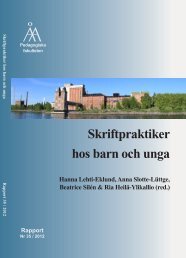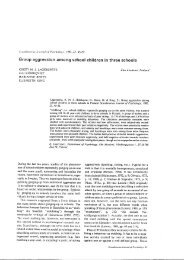Parties, Candidates and Citizens On-Line - Åbo Akademi
Parties, Candidates and Citizens On-Line - Åbo Akademi
Parties, Candidates and Citizens On-Line - Åbo Akademi
Create successful ePaper yourself
Turn your PDF publications into a flip-book with our unique Google optimized e-Paper software.
of user preferences. If internet politics is ‘preaching to the converted’, the activity on the<br />
political forum ought to be lower than on its non-political counterpart.<br />
The research method of this study is quantitative. The activity on all selected<br />
discussion boards was examined through the ‘discussion threads’. A thread is constructed<br />
as a network of messages concerning the same topic, posted to a discussion board. In<br />
essence, a thread is a written transcript of the electronic debate. The threads can consist<br />
of different numbers of messages on different levels of the debate. Hence, some messages<br />
are replies to the thread’s initiating message while others are replies to other replies. Each<br />
discussion thread was coded for length (number of individual messages in thread), depth<br />
(number of discussion levels, i.e. the extent of replies to replies) <strong>and</strong> debaters (the number<br />
of citizens participating in the thread). However, whether a quantitative method is the<br />
most appropriate method for answering the research questions of the study is somewhat<br />
questionable. Hence, the validity of the findings <strong>and</strong> alternative methodological<br />
approaches are further discussed in the concluding section of the article.<br />
In order to analyze the data, several indices measuring the activity on the discussion<br />
boards were constructed. The coding procedure was divided into three time periods in<br />
order to answer research questions RQ3 <strong>and</strong> RQ3a. Thus, the activity on the forums was<br />
first coded in a period of ‘electoral peace’ between the 11 th March 2002 <strong>and</strong> 24 th March<br />
2002 (this period is referred to as T1 in the rest of the paper). Secondly, the forums were<br />
revisited prior to the Finnish parliamentary election 8 between the 3 rd of March 2003 <strong>and</strong><br />
the 16 th of March 2003 (referred to as T2 henceforth). Finally, the activity on the forums<br />
was coded between the 26 th of May 2003 <strong>and</strong> the 8 th of June 2003 (Henceforth T3), in<br />
order to control for eventual election-effects in the previous time period (T2) <strong>and</strong> to<br />
provide a wider picture of longitudinal development of the electronic debates in Finl<strong>and</strong>.<br />
The two boards on the web portal jippii.fi were only coded in the first coding period as<br />
the web portal has introduced registration of users since then. In coding the activity, a<br />
delay of two days 9 was applied in order to allow the debates to develop.<br />
4. Findings<br />
4.1. Activity on the discussion boards<br />
In total, 2,847 discussion threads were coded during the three coding periods. A<br />
comparison of the activity on the different discussion forums reveals that the activity on<br />
the board of the National Coalition Party (NCP) dominated the total activity. Table 1<br />
pictures the spread of discussion threads.<br />
153



